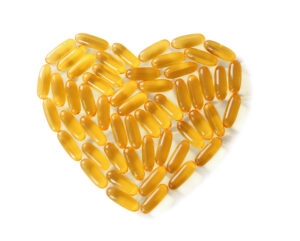 What is cholesterol?
What is cholesterol?
Cholesterol is a waxy or fatty substance that is vital for many bodily functions, especially to produce hormones, help make vitamins, and build and repair cells.
The liver makes the cholesterol needed by the body and it is also obtained from animal foods like meat, poultry and dairy.
The two major types include low-density lipoprotein cholesterol, also known as LDL cholesterol or “Bad Cholesterol”, and high-density lipoprotein cholesterol, also known as HDL cholesterol or “Good Cholesterol”.
For those who have high levels of the bad type of cholesterol, the hopeful news is that a large number of health conditions caused by high cholesterol can easily be prevented with simple lifestyle improvements consisting of diet, exercise, and natural remedies.
Why it’s important to keep cholesterol in check
Too much bad cholesterol (LDL) in the blood increases the risk of plaque build ups (fatty deposits) in the artery walls and may result in atherosclerosis, a condition where arteries become narrow and hard. This may cause a number of heart and blood vessel-related (cardiovascular) conditions such as heart attack and stroke.
How to lower cholesterol by natural means
Naturopathic medical science is a type of healthcare that integrates proven traditional methods with modern treatment. It encourages the body to heal itself from within using several alternative natural therapies. The best part is that it focuses not only on suppressing the symptoms, but it also addresses the underlying causes to eliminate a symptom at its root.
Natural medicine practitioners take into consideration each and every factor that might be linked to developing high cholesterol. They help bring cholesterol to healthy levels through lifestyle choices, healthy eating, and medicinal foods and herbs.
The following sections will address how one can balance cholesterol to healthy levels from a natural medicine point of view.
Lifestyle changes to reduce cholesterol
According to the World Health Organization (WHO), the most prevalent risk factors of heart disease and stroke are unhealthy lifestyle choices that may include physical inactivity, unhealthy diet, excess use of alcohol, and tobacco use. The effects of these lifestyle factors may show up as raised blood cholesterol, obesity, and overweight, among others (1).
Eating more vegetables and fruits, quitting smoking, reducing salt intake, avoiding consumption of alcohol, and adopting regular exercise have been found to be highly effective in reducing the risk of developing high cholesterol and obesity as well as cardiovascular diseases (1).
A review of related studies that was published in the Archives of Internal Medicine in 1991 showed that making healthy improvements with exercise and diet can significantly reduce levels of the “bad” cholesterol. These changes reduced the risk of developing heart and blood disease in most adults (2).
Diet to reduce cholesterol naturally
Dietary changes are the first and foremost step we can take to bring cholesterol levels to a healthy range. Eating foods that contain high fiber and healthy types of fats are highly beneficial in reducing cholesterol in the blood.
Developing a healthy diet includes:
Avoiding trans fats
Trans fats, also known as trans fatty acids (TFAs), are fats found in vegetable oils that have been industrially modified through a process called hydrogenation to make them more stable. Hydrogen has been infused into these fats.
Processed foods and foods that contain trans fats such as margarine and hydrogenated vegetable oils (like hydrogenated soybean oil and cottonseed oil), are unhealthy. Highly processed foods with these fats include chips, cookies, candy, ice cream, fast foods and processed meats.
Whole, single foods such as vegetables, fruits, meat, fish, poultry, eggs, nuts, seeds, yams, potatoes, and healthy oils like olive and coconut oil, are great for one’s health and cholesterol. Especially leafy greens, salmon and sardines.
According to the American Heart Association (AHA), eating foods that contain trans fats increases the risk of developing stroke and heart disease by raising LDL (bad) cholesterol and lowering HDL (good) cholesterol levels in the body (3).
For this reason, the World Health Organization (WHO) made an international call to eliminate artificial (industrially produced) trans fats from the food supply globally by 2023 (4).
Eating more soluble fibers
Soluble fibers are roughage parts of plant derived foods that absorb water and create a semi-solid substance in the gut and also help remove harmful solid fat molecules from the digestive tract.
Soluble fibers nourish healthy microbiomes in the gut and help eliminate LDL cholesterol from the human body. Healthy microbiomes are beneficial bacteria that live in the digestive tract. Good sources of soluble fibers include lentils, beans, peas, fruits, and a number of whole grains, particularly oats.
A study published in 1999 has shown that various dietary soluble fibers can reduce bad LDL and total cholesterol by similar amounts (5).
Adding more omega 3 fats into the regular diet
Omega 3 fatty acids have been found to be beneficial for reducing LDL (bad) cholesterol and increasing HDL (good) cholesterol. Good sources include fatty fish such as mackerel, salmon, and sardines, olive oil, various nuts especially walnuts and almonds, avocados, and flaxseed oil.
The British Journal of Nutrition found that replacing unhealthy fats with omega 3 fats reduced total cholesterol levels within 8 weeks (6).
Natural remedies for high cholesterol
There are plenty of herbs and foods that have been used as natural remedies for high cholesterol for decades. Most popular natural remedies for high cholesterol may include garlic, psyllium, flaxseed, ginger, and more.
Natural herbs and foods have a long history of therapeutic use, and multiple scientific studies have also substantiated their traditional uses in lowering cholesterol and improving heart health naturally.
Here are five of the best natural remedies for high cholesterol:
Garlic
Garlic is considered one of the most beneficial herbal remedies and has been widely used as an effective therapeutic ingredient to decrease cholesterol across nearly all cultures throughout the world.
A 2013 review published in the Nutrition Reviews concluded that garlic can be used as an effective alternative to lower cholesterol in people who have slightly elevated cholesterol levels. Garlic was highly tolerable in all trials, it was associated with minimal side effects, and had higher safety levels than conventional cholesterol-lowering medications (7).
Psyllium
Psyllium is rich in soluble fibers derived from the husks of seeds from a plant botanically known as Plantago ovata. It has a miraculous ability to alleviate cholesterol and blood sugar levels in the body. It also helps relieve constipation.
A research review published in the American Journal of Clinical Nutrition in 2018 has confirmed that psyllium has the property to reduce LDL cholesterol and delay the process of atherosclerosis (clogged arteries). Psyllium lowered the risk of cardiovascular diseases in people with or without higher levels of cholesterol (8).
Flaxseed
Flax is a flowering plant majorly grown in temperate zones in mild weather. The seeds and the oil extracted from them both contain a considerable amount of omega 3 fatty acids that show many health benefits including lowering LDL cholesterol and increasing HDL cholesterol in the body.
Ginger
Ginger is widely used in the natural medicine system for its potent anti-inflammatory actions. It showed significant beneficial effects in reducing bad cholesterol levels in the human body.
A 2008 study in the Saudi Medical Journal showed ginger can lower bad fats and raise the good ones (9).
Berberine
Berberine is a naturally occurring compound found in many plants, particularly in a shrub group called Berberis. Berberine is found in the roots, stems, and bark of various plants, including goldenseal, barberry, and Oregon grape, and has potent anti-inflammatory benefits. It shows cholesterol-lowering effects of the bad type.
Summary
These are some proven ways to normalize cholesterol naturally but there are more. For anyone who suspects or has been told they have high cholesterol, it’s best to seek out a naturopathic doctor or nutritionist so they can customize the best natural remedies for each individual.
In the meantime, have the person get outside for some good walks, put some garlic in their meals, avoid fast food and highly processed foods, and eat more salmon, walnuts and vegetables.
References:
- World Health Organization. “Cardiovascular Diseases.” int, World Health Organization: WHO, 2019, www.who.int/health-topics/cardiovascular-diseases#tab=tab_1.
- Barnard, R. James. “Effects of Life-Style Modification on Serum Lipids.” Archives of Internal Medicine, vol. 151, no. 7, 1 July 1991, pp. 1389–1394, jamanetwork.com/journals/jamainternalmedicine/article-abstract/615295, 1001/archinte.1991.00400070141019.
- American Heart Association. “Trans Fats.” heart.org, 23 Mar. 2017, www.heart.org/en/healthy-living/healthy-eating/eat-smart/fats/trans-fat.
- Li, Chaoyang, et al. “Global Surveillance of Trans-Fatty Acids.” Preventing Chronic Disease, vol. 16, 31 Oct. 2019, www.cdc.gov/pcd/issues/2019/19_0121.htm, 5888/pcd16.190121.
- Brown, Lisa, et al. “Cholesterol-Lowering Effects of Dietary Fiber: A Meta-Analysis.” The American Journal of Clinical Nutrition, vol. 69, no. 1, 1 Jan. 1999, pp. 30–42, 1093/ajcn/69.1.30.
- Ulven, Stine M., et al. “Exchanging a Few Commercial, Regularly Consumed Food Items with Improved Fat Quality Reduces Total Cholesterol and LDL-Cholesterol: A Double-Blind, Randomised Controlled Trial.” British Journal of Nutrition, vol. 116, no. 8, 14 Oct. 2016, pp. 1383–1393, www.cambridge.org/core/services/aop-cambridge-core/content/view/S0007114516003445, 1017/s0007114516003445. Accessed 19 July 2020.
- “Validate User.” oup.com, academic.oup.com/nutritionreviews/article/71/5/282/2460203?login=false.
- Jovanovski, Elena, et al. “Effect of Psyllium (Plantago Ovata) Fiber on LDL Cholesterol and Alternative Lipid Targets, Non-HDL Cholesterol and Apolipoprotein B: A Systematic Review and Meta-Analysis of Randomized Controlled Trials.” The American Journal of Clinical Nutrition, vol. 108, no. 5, 15 Sept. 2018, pp. 922–932, 1093/ajcn/nqy115.
- Alizadeh-Navaei, Reza, et al. “Investigation of the Effect of Ginger on the Lipid Levels. A Double Blind Controlled Clinical Trial.” Saudi Medical Journal, vol. 29, no. 9, 1 Sept. 2008, pp. 1280–1284, ncbi.nlm.nih.gov/18



